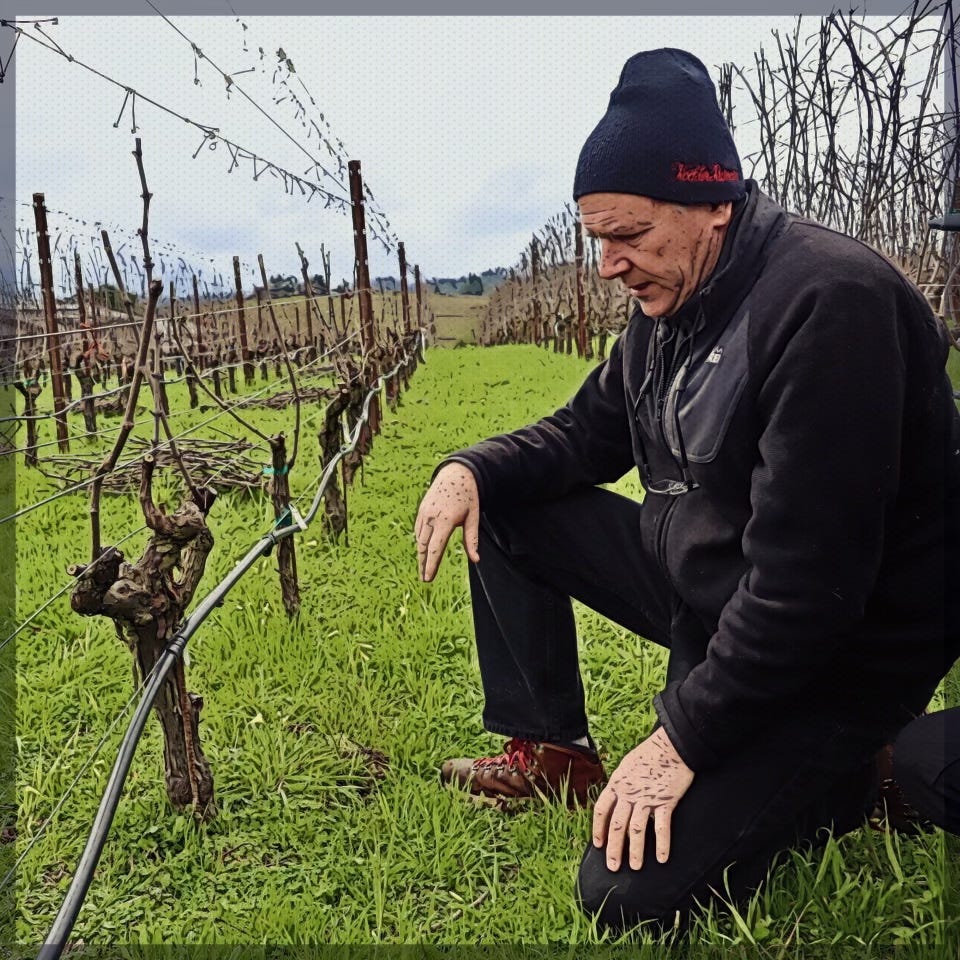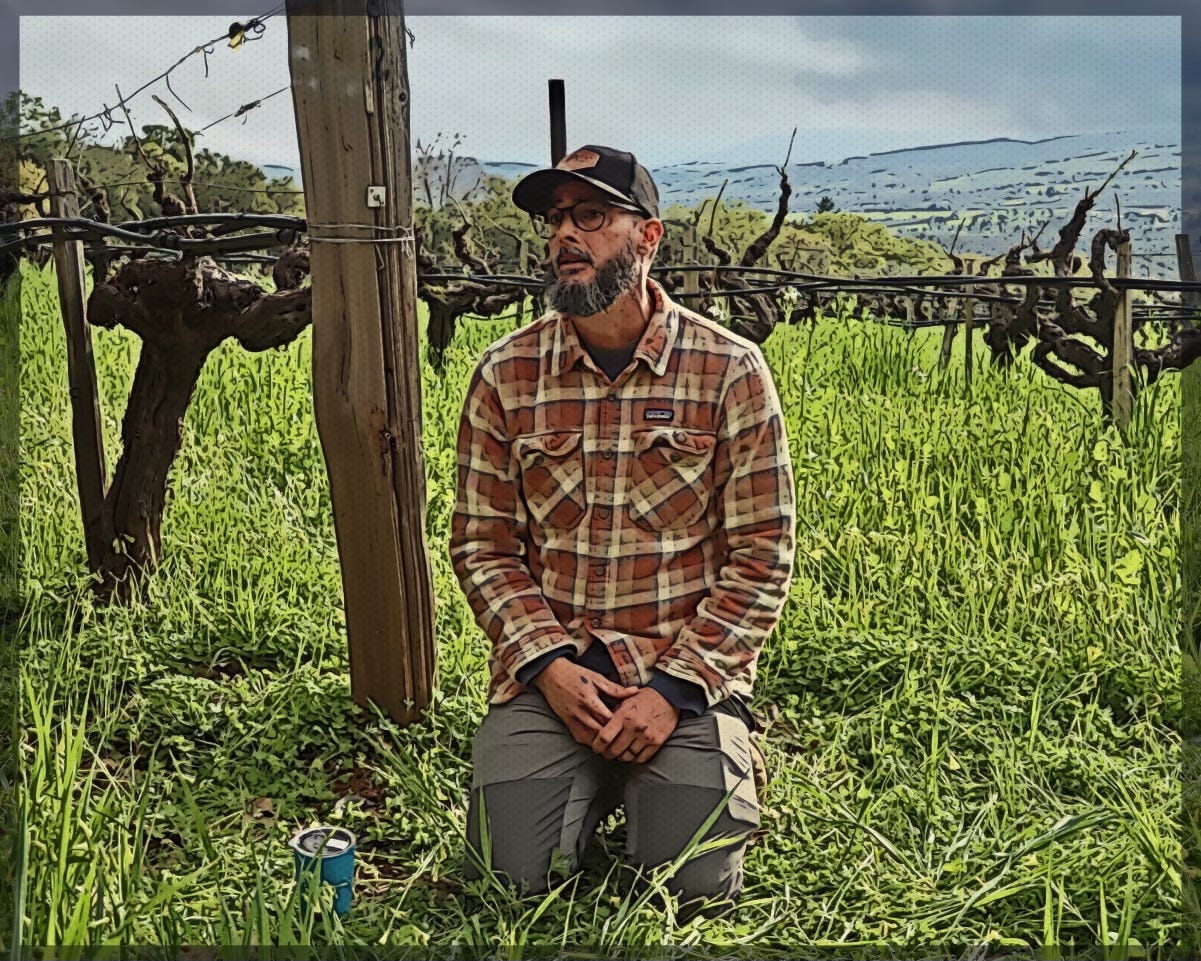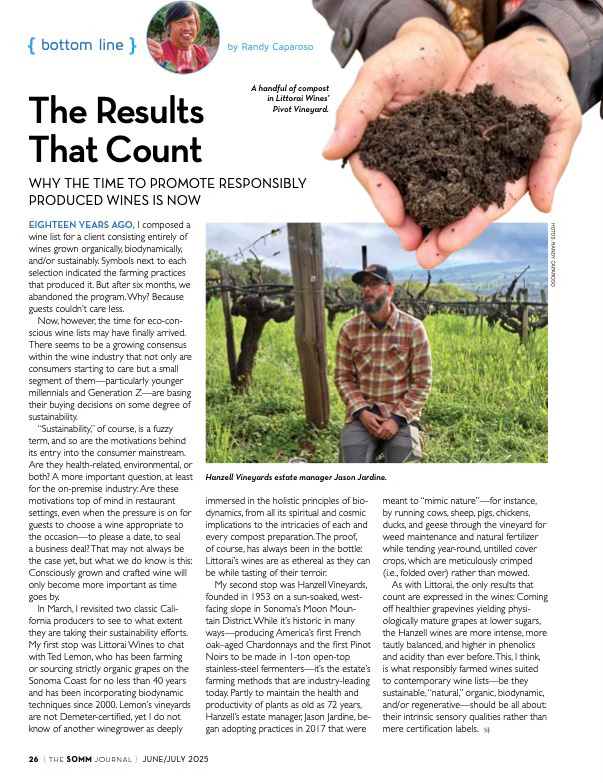Regenerative wine lists: Results that count
Why the time to promote responsibly grown wines in restaurants is now
Eighteen years ago I composed a wine list for a client consisting entirely of wines grown either organically, biodynamically or sustainably. Symbols were attached to each selection indicating respective farming practices. After six months we abandoned this wine program altogether. Why? Because guests could care less.
Has the time for “eco-conscious” wine lists finally arrived? There seems to be a growing consensus within the wine industry that consumers are not only starting to care, a small proportion of them—particularly among emerging Generation Z (born between 1997 and 2012) and younger Millennials (1981-1996)—are even basing buying decisions on some degree of sustainability.
“Sustainability,” of course, is a fuzzy term, for the wine industry and consumers alike. Are we talking about certified sustainable wines, organically farmed wines, biodynamic or the latest permutation, regeneratively grown wines? Is a consumer’s motivation health related, is it environmental, or both? What is the relation to the perception of wines identified by the increasingly popular (and equally fuzzy) concept of “natural?”
More important, at least for the on-premise industry: Are these decisions top of mind in restaurant settings, when lights are dimmed and candles are burning, and the pressure is on for guests to choose a wine appropriate to the occasion, to please a date, seal a business transaction, or anything that might push the question of farming practices way down on a priority list? If anything, what we do know is this: Consciously grown and crafted wine will only become more important, not less important, as time goes by.
Curious about the wine industry’s most recent responses, this past March I revisited two classic producers to see to what extent they are taking this. My first stop was the home estate of Littorai Winery to chat with Ted Lemon, who has been farming or sourcing strictly organic grapes for no less than 40 years on the Sonoma coast. Interestingly, Lemon does use the term “regenerative,” although he has embraced biodynamic practices since 2000. Lemon’s vineyards are not Demeter certified, yet I do not know of another winegrower who is as deeply immersed in these holistic principles, from all the spiritual and cosmic implications to each and every plant preparation and intricacy of compost making.
The proof, of course, has always been in the bottle: Littorai wines are as ethereal as any wine can be; and, still unusual for actually tasting like they come from those vineyards in terms of nose, structure, individual terroir. The vigneron truly acquiesces to “place.” However it’s being done, it’s working!
My second stop was Hanzell Vineyards, founded in 1953 on a sun soaked west facing slope of Sonoma’s Moon Mountain District. While it may now be as much a museum—America’s first French oak aged Chardonnays and 1-ton open-top fermented Pinot Noirs were crafted there—the estate’s farming practices are industry leading. Part of it is maintaining the health and productivity of plants as old as 72 years, far more challenging for Burgundian varieties than for grapes such as Zinfandel, more easily adapted to the state’s Mediterranean climate.
Since 2017 Hanzell’s estate manager Jason Jardine has adopted practices meant to “mimic nature”—by runnings cows, sheep, pigs, chickens, ducks and geese through the vineyard while completely eschewing composting in favor of year-round, untilled cover crops, which are meticulously crimped (i.e., folded over) rather than mowed.
As with Littorai, the only results that count are in the wines: Coming off healthier grapevines yielding physiologically mature grapes at lower sugars, the Hanzell wines are more intense, more tautly balanced and higher in phenolics and acidity than ever before. This, I think, is what “regenerative” wines for wine lists touting contemporary attributes should be all about: Sensory qualities intrinsic in actual products, not proclaimed in slogans or certification labels.








Having visited Littorai myself, can absolutely vouch for the ethereal nature of their wines. Seriously good stuff, and the few vines we got to walk through on the tour were absolutely immaculately kept, something which speaks to the attention to detail. Great article as always!
Just finished a 4 day tour of Sonoma County with a group of wine writers during which we spoke to over 60 winemakers and vineyard managers. Sustainability was key from the start when Karisss Kruse briefed us on Sonoma County's efforts. Virtually everyone winemaker/vineyard manager spoke of regenerative or biodynamic practices. Perhaps now IS the time. Great article, Randy. Thank you.